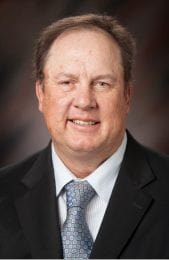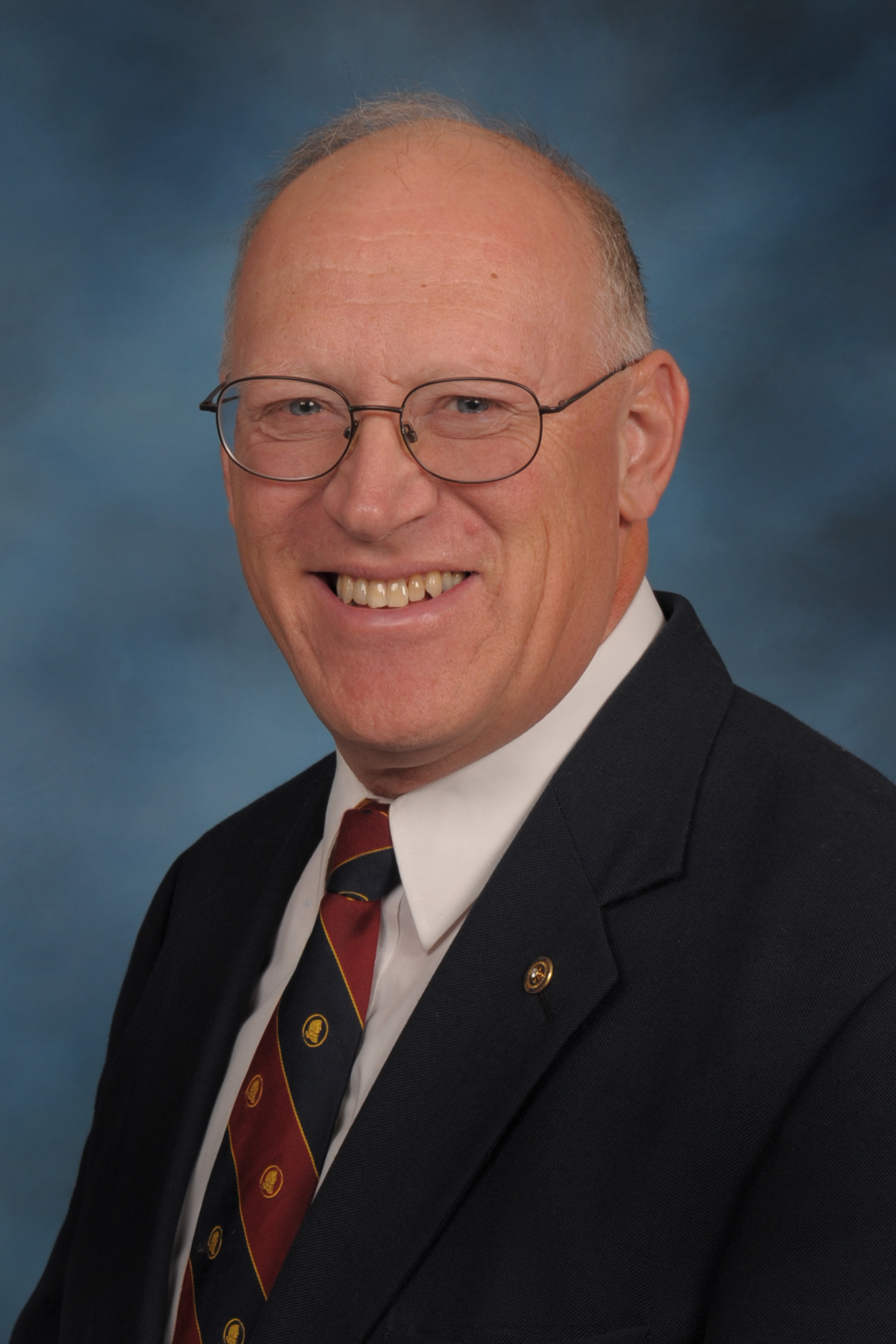“Young cooperator.” That is a nice combination of positive terms. In this case, it literally refers to a young adult who is active in his or her dairy cooperative. Those young cooperators tend to continue to be involved in their cooperative’s leadership. Today we’ll meet a dairy farm family which began as young cooperators and are continuing that legacy into another generation.

Last week we learned about dairyman Steve Strickler, a member of the board of directors of the dairy cooperative known as Dairy Farmers of America. Byron Lehman from Newton also serves on that board.
Byron’s family came from a dairy farm in upstate New York and moved to Kansas in 1953. His family farmed and Byron’s dad started dairying with Byron and his brother. “I think he dairied to keep his boys out of trouble,” Byron said with a smile.
Byron went to Hesston College and then finished a degree in dairy science from K-State. He joined the family farming partnership that continues to this day. Byron’s wife DeDee is from Denver. They have a daughter named MeLissa who is married to Steven. Steven is a police officer and also helps them farm.
The dairy farm is named Le-Dr Dairy. The Lehmans milk approximately 250 cows and farm 1,000 acres of wheat, corn, alfalfa, milo and soybeans. Their farm is in a rural setting outside of the town of North Newton, population 1,759 people. Now, that’s rural.
Member-owned dairy cooperatives are the primary collectors and aggregators of fluid milk in the U.S. These co-ops also offer various other programs and services to benefit their members such as educational programs for their young farmer-members, who are also known as young cooperators.
Byron and DeDee were selected as young cooperators in the 1980s. In fact, Byron served as chair of the young cooperators committee. He was involved with a dairy cooperative called Associated Milk Producers Inc. or AMPI. In 1987, Byron was elected to the Board of AMPI. When AMPI merged with other cooperatives to form Dairy Farmers of America, Byron Lehman was elected to that board of directors also.
“The staff and the other directors of DFA are fantastic,” Byron said. He explained that the cooperative is organized into seven different councils and then the corporate board makes the overall business decisions.
What are the key trends that he sees in the dairy industry? “When we started, there were 60 dairies in the county,” Byron said. “Today there are three left.” Dairies have gotten much bigger, with new dairies milking thousands of cows.
How does a 250-cow dairy sustain itself? “We watch our input costs and hire the best people we can,” Byron said. “We rely on our co-op and our nutritionist to help.”
Byron and all the leaders of DFA watch dairy consumption trends very carefully. “Fluid milk consumption is down but whole milk has made a resurgence,” he said. “Butter has been great for us, and cheese is a shining star.”
He recognizes it is important to promote the nutritional benefits of milk products. “We work with dietitians all the time on the health benefits of dairy,” he said. He recalls a breakthrough of a few years ago when the cover of Time magazine proclaimed “Butter is good for you.” Another positive step was when the promotion groups got together and encouraged more cheese to be put on pizza.
One concern Byron has is false labeling. “We see things called soybean milk or coconut milk that aren’t truly milk,” Byron said. “Milk comes from a lactating female and is the only food with nine essential vitamins and minerals.”
These trends are important to the future of dairy farming. Byron is especially pleased that his daughter and son-in-law were selected by their cooperative as, you guessed it, young cooperators.
We commend Byron and DeDee Lehman and MeLissa and Steven for making a difference with their hard work in dairy farming. They demonstrate the benefits of cooperation.
And there’s more. The dairy industry has especially grown in western Kansas, and we’ll learn about that next week.
Audio and text files of Kansas Profiles are available at http://www.kansasprofile.com. For more information about the Huck Boyd Institute, interested persons can visit http://www.huckboydinstitute.org.
